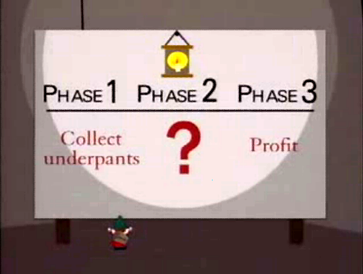Yesterday I came across Liping Ma's article from last November's Notices of the American Mathematical Society, entitled "A Critique of the Structure of U.S. Elementary School Mathematics." I believe it is free to the public, but I'm on a university network, which sometimes gives me permission to access journals that are blocked to the public (if you can't see it, let me know). It is 15 pages, and covers as much history as math. I recommend reading it if you're at all interested in this stuff.
Its probably the best thing I've ever read on the subject of standards. It doesn't touch on the Common Core itself, but is clearly applicable.
Unlike virtually everything I've read about the Common Core, Ma regards the most important and influential role of "standards" as defining the scope and nature of the subject as taught, particularly in reference to the corresponding academic discipline.
Ma's argument is that American elementary school mathematics was profoundly but nearly imperceptibly transformed by the switch from what she calls a "core-subject model" to a "strand" model. The difference to Ma is that a "core-subject" "...is a collection of skills or a self-contained subject with principles similar to those of the discipline of mathematics."
Instead, since the New Math, we've used "strands":
As we have seen, the strands structure allowed an unlimited number of possibilities for changing the names, number, content, and features of the strands. After this, U.S. elementary mathematics lost its stability and coherence. After only four years, the same mathematics professors who wrote the first Strands Report changed the strands without explanation. In a strands structure, no strand was self-contained; moreover, the relationship among the strands was such that individual strands could be readily changed. Anyone writing a framework could easily change the content of mathematics education by changing a strand. Later, when the main authors of the mathematics framework were not mathematicians but teachers and cognitive scientists, they retained its structure, but changed its strands to fit their views of mathematics education.
Put another way, once you see an academic subject as a bags of stuff, you're not going to be able to resist trying to solve every problem by changing around the stuff in the bags, and there is a very strong tendency to do that willy-nilly, as we have seen.
In ELA/Literacy, I would say the Common Core has gone further and is simply disdainful of English/Language Arts as a discipline. If one asks "What is English?" and reads the CC ELA/Literacy standards, they will find no answer.
The challenging part of Ma's thesis is that it is difficult to imagine the alternative to "strands," and it is unclear how applicable it is to other subjects that simply cannot be reduced to as unitary a focus as Ma argues elementary mathematics can be. After all, while Ma argues against the efficacy of pushing advanced math topics (as "strands") down into elementary math, she is not arguing for their later exclusion.
I'm definitely taking from this the idea that expressing standards as a set of interwoven strands is an "anti-pattern," that is, "a common response to a recurring problem that is usually ineffective and risks being highly counterproductive." The response, I think, would be to start with a much more disciplined and, well, disciplinary definition of the subject at hand. It also requires an approach to developing advanced skills that's a bit more subtle and pedagogically informed than simply pushing direct precursors down to the lowest grade level possible and hammering on them year after year.


